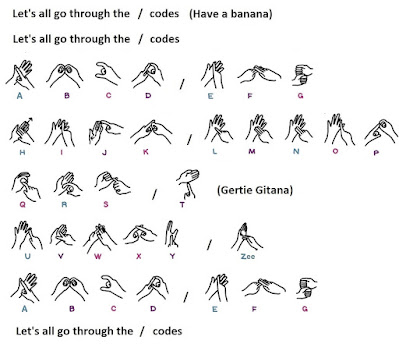We had a Blue Peter afternoon.
For those not from the U.K., Blue Peter is a BBC Television children’s magazine programme that has been running at least once a week since the nineteen-fifties. Amongst a wide variety of content, it is known for encouraging children to make things out of cardboard, pipe cleaners, household waste items, and “sticky-backed plastic”. One of its best-remembered creations was a version of the Thunderbirds Tracy Island in the nineteen-nineties.
That was amusing in itself. Television re-runs of Thunderbirds generated a stream of toys and merchandise, and Matchbox Toys brought out a Tracy Island play set just before Christmas. It sold out within days. Blue Peter responded with a home-made version made from paper mache. Thunderbird 1 was launched from a Yoghurt pot, the hangar for Thunderbird 2 was a tissue box, and Thunderbird 3 launched out of a toilet roll. The BBC was inundated with so many requests for the free instructions, they had to stop sending them out, and instead released a VHS video of presenter Anthea Turner making it (see the BBC archive).
Our Blue Peter afternoon was spent making a horse racing game for the memory group Mrs. D. runs. The theme that week was Royal Ascot.
We came up with a track made from long pieces of card marked with lines, with cardboard fences. For the horses, I printed out two-sided chess knights in different colours. They were stapled around movable cardboard stands.
The rules were kept simple. Each player has a horse to move according to the throw of a dice (I can hear my maths teacher telling me if there is only one it is a die). If you land on a space before a fence, that counts as a refusal and you have to move back three spaces. The first to the finish line is the winner. With around ten participants taking turns, the game lasts more than half an hour.
Horses are go. F.A.B. Anything can happen in the next half hour.
It was fantastic fun, with laughter and excitement. One lady must have had a “donkey”, because it kept refusing the first fence when most of the others had nearly finished. Some wanted to bet on the outcome, but that was not allowed, although they could try to predict the winner. One could not remember which was her horse, and one kept taking the die out of the cup and turning it in his hand, not knowing what to do. They laugh at each other because they think that they are the only one that is with it, and that all the others (including the volunteers) are completely gaga.
“Parka”
“Yuss Billaidi”
“Put down one hundred pounds each way on the green-yellow one, at 7:2”
“They won’t allow it, Billaidi”
“Oh! And Ascot used to be such fun”
“Yuss Billaidi”
Of course, I wanted to strive for perfection by colouring the track green and drawing white railings along the sides, having water jump, colouring the horses in jockey colours, and making one a zebra, but Mrs. D. said we had spent long enough. Perhaps we should send off for our Blue Peter badges anyway.
We spent days making things like this as children. One of the best Christmas or Birthday presents you could get was a roll of Sellotape, a bottle of glue, a ball of string, and a few cardboard boxes. My brother made himself an aeronaut’s flying suit out of cardboard, complete with streamlined leggings, gauntlets, helmet and wings. He bounded around the house in it, jumping on and off the furniture making flying noises.
Would many of today’s youngsters, who seem to spend most of their time playing games and messaging each other on their phones, have the interest, persistence, or even the practical ability to make such things?
Credits: The voices of Lady Penelope and P. were provided by JayCee and Parker, with American and Australian versions by Steve Reed and Andrew High Riser, and German sub-titles by Meike Riley. The horses were fed on silage grown by Dave Northsider, their stables built by Debby Hornburg, and the zebra ridden side saddle by Debra who seeks. The horses are writing a guest post for Tigger’s Mum. Tracy Island and the race game were made by Mrs. D. who let Tasker think he was helping. Thelma played Anthea Turner, and Yorkshire Pudding was Brains.










































